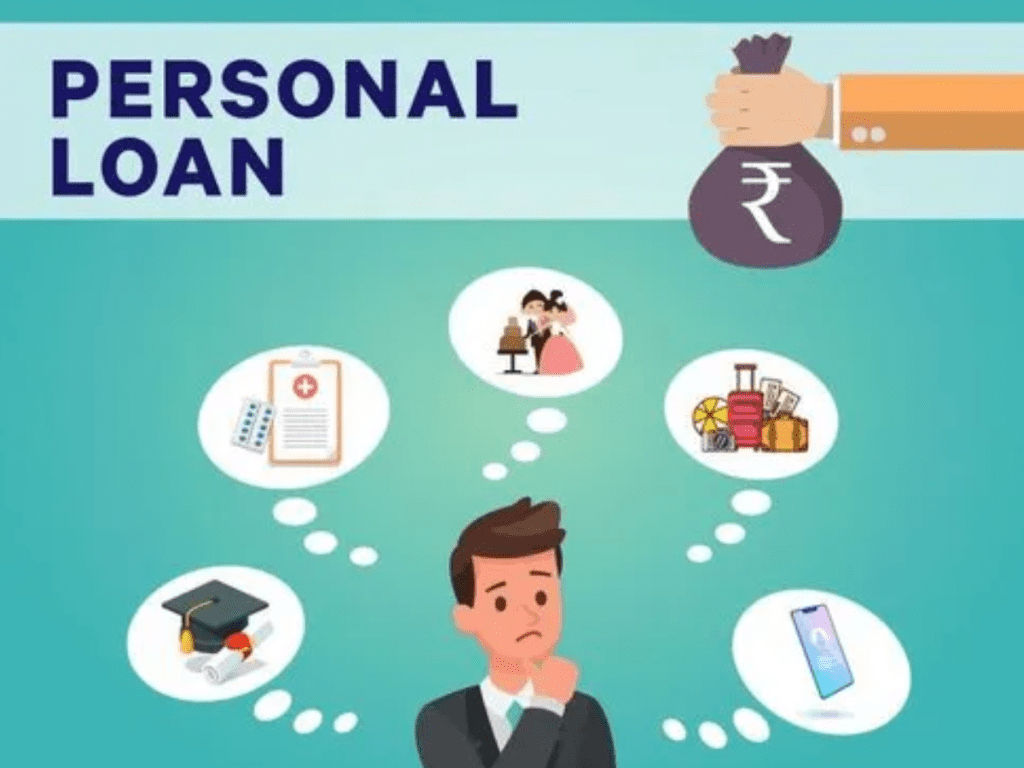Introduction
In the world of personal finance, personal loans are a versatile and accessible borrowing option. They can be used for various purposes, including debt consolidation, home improvements, medical expenses, or even funding a major purchase. However, deciding whether a personal loan is worth it depends on your specific financial situation, goals, and how responsibly you handle the debt.
This comprehensive guide explores the advantages, drawbacks, and key considerations of personal loans to help you make an informed decision.
What is a Personal Loan?
A personal loan is a type of unsecured loan provided by banks, credit unions, or online lenders. Unlike secured loans, personal loans don’t require collateral. Instead, approval is based on factors such as your credit score, income, and debt-to-income (DTI) ratio.
- Loan Amounts: Typically range from $1,000 to $100,000.
- Repayment Terms: Commonly range from 1 to 7 years.
- Interest Rates: Fixed rates usually range from 6% to 36%, depending on your creditworthiness.
Advantages of Personal Loans
1. Flexibility in Use
Personal loans can be used for virtually any purpose, unlike other loans designated for specific needs, such as auto or home loans. Whether it’s paying off high-interest credit card debt, funding a wedding, or covering unexpected medical bills, a personal loan provides financial flexibility.
2. Fixed Interest Rates and Payments
Most personal loans have fixed interest rates, ensuring that your monthly payments remain consistent throughout the loan term. This predictability makes budgeting easier.
3. Debt Consolidation
Personal loans can consolidate multiple high-interest debts into one manageable monthly payment. This can simplify finances and potentially save on interest costs.
4. No Collateral Required
Because personal loans are unsecured, you don’t need to put up assets like your home or car as collateral. This reduces the risk of losing valuable property if you default.
5. Quick Access to Funds
Many lenders offer quick approval and disbursement, sometimes within 24 hours. This makes personal loans a viable option for urgent financial needs.
Drawbacks of Personal Loans
1. Higher Interest Rates
Since personal loans are unsecured, they typically have higher interest rates than secured loans. Borrowers with lower credit scores may face rates on the higher end of the spectrum.
2. Fees and Charges
Some personal loans come with origination fees (1% to 8% of the loan amount), prepayment penalties, or late payment fees, which can add to the overall cost.
3. Potential for Overborrowing
The ease of obtaining a personal loan can tempt borrowers to take on more debt than necessary, leading to financial strain.
4. Impact on Credit Score
Taking out a personal loan will result in a hard inquiry on your credit report, which can temporarily lower your score. Additionally, late payments can have a negative long-term impact on your credit.
Key Considerations Before Taking a Personal Loan
1. Purpose of the Loan
Clearly define why you need the loan and whether it’s worth the associated costs. Personal loans are best suited for necessary expenses or investments that provide long-term value, such as consolidating debt or funding education.
2. Interest Rates and Loan Terms
Shop around to compare rates, terms, and fees from different lenders. Use prequalification tools to gauge potential offers without impacting your credit score.
3. Your Financial Situation
Evaluate your income, expenses, and debt obligations to ensure you can comfortably manage monthly payments. Avoid taking a loan if it would overextend your finances.
4. Repayment Plan
Create a repayment strategy to ensure you pay off the loan on time and avoid additional interest or late fees.
5. Alternative Options
Consider alternatives such as:
- Balance Transfer Credit Cards: For consolidating credit card debt.
- Home Equity Loans: For large expenses if you own a home.
- Savings: For non-urgent needs, using savings may be a better option.
When is a Personal Loan Worth It?
Personal loans can be a smart financial tool in the following scenarios:
1. Debt Consolidation
If you have multiple high-interest debts, consolidating them with a lower-interest personal loan can simplify payments and reduce interest costs.
2. Emergencies
For unexpected expenses, such as medical bills or urgent repairs, a personal loan can provide quick access to funds without resorting to high-interest payday loans.
3. Home Improvements
Funding renovations or repairs with a personal loan can increase your property’s value or improve your living conditions.
4. Investing in Education or Career Growth
Using a personal loan to pay for certifications, courses, or training can yield long-term financial benefits through higher earning potential.
5. Major Life Events
While it’s important to borrow responsibly, personal loans can help fund significant milestones, such as weddings or relocations, without depleting savings.
When to Avoid a Personal Loan
Avoid personal loans in the following situations:
1. For Non-Essential Expenses
Using a personal loan to finance discretionary purchases, like luxury vacations or expensive gadgets, can lead to unnecessary debt.
2. If You Have Unstable Income
Taking on debt without a stable income increases the risk of missed payments and financial hardship.
3. When Better Alternatives Exist
If you qualify for lower-interest financing options, such as a home equity loan or 0% APR credit card, those may be better choices.
Tips for Using Personal Loans Wisely
- Borrow Only What You Need: Avoid overborrowing to minimize debt and interest costs.
- Choose the Right Lender: Compare multiple lenders to find the best terms and rates.
- Read the Fine Print: Understand all fees, penalties, and conditions before signing.
- Pay on Time: Set up automatic payments to avoid late fees and maintain a good credit score.
- Monitor Your Loan: Regularly track your loan balance and progress to stay on top of repayments.
Final Thoughts
Personal loans can be a valuable financial tool when used responsibly. They offer flexibility, quick access to funds, and the potential to consolidate debt or finance essential expenses. However, their worth depends on your financial goals, the cost of borrowing, and your ability to manage repayments.
By carefully evaluating your needs, shopping for the best rates, and creating a solid repayment plan, you can make an informed decision about whether a personal loan is the right choice for your situation. Remember, borrowing should always align with your long-term financial well-being.

